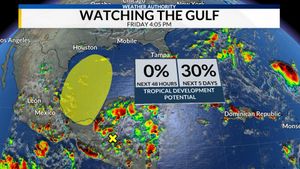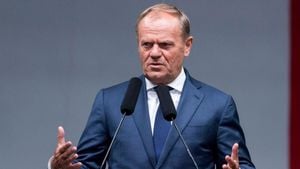The war between Russia and Ukraine, now entering its third year, continues to prompt extensive humanitarian aid and international support for Ukrainians affected by the conflict. This anniversary, observed on February 24, marks not just the passage of time but also the widening circle of efforts to assist those still grappling with the war's devastating effects.
Bishop Petro Loza of the Sokal-Schowkwa Eparchy, located roughly 80 kilometers from Lviv in western Ukraine, recently visited Germany to share insights about the suffering many of his congregants endure. Despite the eparchy's geographical distance from the war's frontline, Bishop Loza noted the harsh realities faced by families who have lost fathers and husbands to the conflict. "Many men from our communities have fallen as soldiers, leaving families without fathers to raise their children. Those who return home often grapple with psychological trauma," he explained.
Organizing support for these families, the bishop has initiated regular gatherings where affected individuals can share their experiences and connect with others facing similar struggles. The Osnabrück diocese expresses commitment to bolster these initiatives through psychological counseling and communal support, emphasizing the need for community resilience during these trying times.
Meanwhile, aid organizations such as Johanniter continue to play a pivotal role on the ground. Florian Beck, their program officer for Ukraine, elaborated on the dire circumstances within frontline communities. He stated, "People live under sometimes dramatic conditions, barricading themselves inside basements or ruins hoping to avoid falling debris." This urgency has spurred the development of projects like "Road of Hope," aiming to evacuate vulnerable populations from regions exposed to daily airstrikes.
Within the past six months alone, Johanniter successfully evacuated 381 individuals from hazardous proximity to the front lines. Upon reaching safety, these evacuees receive not only assistance with sustaining basic needs through food vouchers and hygiene packages but also legal guidance to help recover lost identity documents.
Significantly, Johanniter's efforts extend beyond emergency evacuations; they are actively providing daily necessities to areas where basic services have been disrupted due to the war, including electricity, running water, and heating. Their interventions have reached approximately 280,000 people so far this year, showcasing the scale of need and the organization’s commitment to addressing it.
Simultaneously, the plight of displaced Ukrainians seeking refuge across borders has captured the attention of broader humanitarian efforts. Since the onset of the war, Johanniter has launched over 80 sponsorship projects throughout Germany to assist with the integration of more than 30,000 refugees. This support includes initial accommodations and daily living assistance, fostering stability for those forced to flee their homes.
The German government, led by Chancellor Olaf Scholz, remains steadfast in its commitment to support Ukraine. After recent discussions with President Wolodimir Selenskij, Scholz reiterated Germany's unwavering solidarity with Ukraine. He declared, "Germany will continue to support Ukraine closely with our European and international partners until we achieve lasting and just peace." This sentiment of solidarity extends beyond mere rhetoric, as it reflects Germany's active contributions to aid and diplomatic measures promoting Ukraine's resilience and sovereignty.
Across Europe, various leaders are coalescing their diplomatic approaches, underscoring the necessity of presenting united support for Ukraine. French President Emmanuel Macron has also engaged with pertinent stakeholders to navigate the challenges of negotiating peace. Recognizing the complex geopolitical dynamics at play, he emphasized, "We do not plan to send fighters to Ukraine; instead, our focus remains on ensuring the safety of Ukrainians through well-structured guarantees post-agreement." This acknowledgment signifies a nuanced approach to peace negotiations, reflecting the delicate balancing act European nations must undertake.
Selenskij's discussions with US representatives also highlight the expectations of Ukrainian leadership for continued engagement from the West. Following conversations with US Special Envoy Keith Kellogg, Selenskij expressed optimism, stating, "The meeting gives hope. The details of any agreement are significant, as well-structured terms will lead to more favorable outcomes for Ukraine." This perspective emphasizes not just the importance of military support but also the significance of well-defined diplomatic efforts to secure Ukraine’s future.
Overall, as the anniversary of Russia’s invasion draws near, both humanitarian needs and political stakes remain high. With increased calls for sustained international support, the combined efforts of local organizations and national governments present a collective front—one dedicated to alleviating suffering and fostering recovery among Ukraine’s war-displaced population.
Continued attention to the humanitarian crisis driven by the conflict is as necessary as ever. The convergence of efforts from religious, humanitarian, and political entities reflects the depth of commitment necessary to bring about significant change for those enduring the fallout of war. Everyone involved plays their part to support the truth: Ukraine must not be left alone as it navigates through these challenging times.



